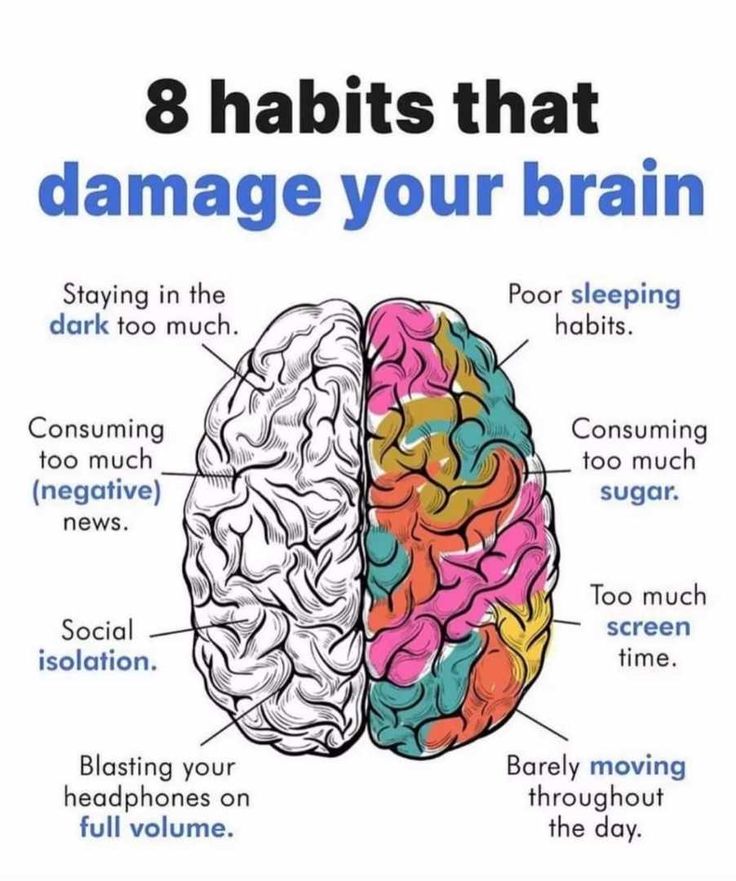
Your brain is your most powerful tool — the command center for everything you think, feel, and do. But what if some of your everyday habits are slowly wearing it down without you even noticing?
While we usually focus on heart health, fitness, or skincare routines, brain health often gets pushed to the back burner. The truth is, some common daily behaviors could be quietly damaging your brain over time. The good news? Once you know what to watch out for, you can start making small changes to protect your mind for the long haul.
Here are eight everyday habits you’ll want to rethink — and how you can start taking better care of your brain starting today.
1. Skipping Breakfast
They don’t call it the most important meal of the day for nothing. When you skip breakfast, you deprive your brain of the glucose it needs to function at its best. Glucose is essential fuel for your brain cells, and low levels can cause fatigue, irritability, and trouble concentrating.
Even something simple like a smoothie, a piece of fruit, or a slice of whole-grain toast can help give your brain the energy boost it needs to start the day strong.
2. Overloading on Sugar
A sweet treat here and there isn’t a big deal, but consistently eating a diet high in sugar can wreak havoc on your brain health. Excessive sugar intake can lead to chronic inflammation, oxidative stress, and even impair cognitive functions like memory and learning.
If you’re craving something sweet, try reaching for naturally sweet foods like berries or a small piece of dark chocolate instead of processed sweets packed with added sugars.
3. Not Getting Enough Sleep
Sleep isn’t just about feeling rested — it’s vital for brain maintenance. During deep sleep, your brain clears out toxins that build up throughout the day. Chronic sleep deprivation can increase your risk of memory loss, mood disorders, and even Alzheimer’s disease.
Aim for seven to nine hours of quality sleep each night. Prioritize a calming nighttime routine, keep screens out of the bedroom, and create a sleep-friendly environment to help your brain recharge.
4. Spending Too Much Time Alone
Humans are social creatures, and meaningful connection is crucial for brain health. Prolonged loneliness and social isolation can lead to cognitive decline and increase the risk of mental health issues like depression and anxiety.
Make an effort to stay connected — whether it’s calling a friend, joining a club, volunteering, or simply chatting with a neighbor. Meaningful conversations can do wonders for your brain.
5. Ignoring Physical Exercise
Physical movement isn’t just good for your muscles and heart — it’s amazing for your brain too. Regular exercise boosts blood flow to the brain, encourages the growth of new brain cells, and helps protect against age-related cognitive decline.
Even just a brisk 30-minute walk a few times a week can make a huge difference. Find an activity you enjoy, whether it’s dancing, hiking, or biking, and make it part of your lifestyle.
6. Chronic Stress
A little stress here and there is normal. But ongoing, unmanaged stress floods your brain with cortisol, a hormone that, in high levels, can damage brain structures like the hippocampus — the part of the brain involved in learning and memory.
Managing stress is critical. Try incorporating mindfulness techniques, deep breathing exercises, yoga, or regular breaks during your day to reset and recharge.
7. Multitasking Constantly
You might think multitasking makes you more efficient, but it actually overloads your brain and reduces productivity. Constantly switching between tasks can make it harder to retain information and weakens your ability to focus over time.
Instead of juggling multiple things at once, try “single-tasking” — focusing fully on one task at a time. You’ll be amazed at how much more you can accomplish, and your brain will thank you for it.
8. Not Drinking Enough Water
Dehydration doesn’t just leave you feeling tired — it also shrinks brain tissue and impairs cognitive function. Even mild dehydration can negatively affect mood, memory, and concentration.
Make it a habit to drink water throughout the day. If you find plain water boring, add a slice of lemon, cucumber, or a splash of natural fruit juice to make it more enjoyable.
Small Changes, Big Results
The habits that harm your brain aren’t always obvious, but being aware of them is the first step toward making positive changes. Protecting your brain doesn’t require huge, dramatic shifts — just a commitment to small, smart choices every day.
Eat a balanced breakfast. Move your body. Stay connected. Prioritize sleep. Manage stress with care. Give your brain the love and attention it deserves, and it will reward you with sharper thinking, better memory, and a stronger, healthier mind for years to come.
Final Thoughts
Your brain is constantly working behind the scenes to help you navigate life. It deserves a little extra care. By breaking a few bad habits and building healthier ones, you can protect this incredible organ and boost your mental clarity, resilience, and creativity.
So next time you reach for that second donut, stay up way too late scrolling, or tell yourself you’re “too busy” to move — think about your brain. A few small changes today can make all the difference for your future self.





